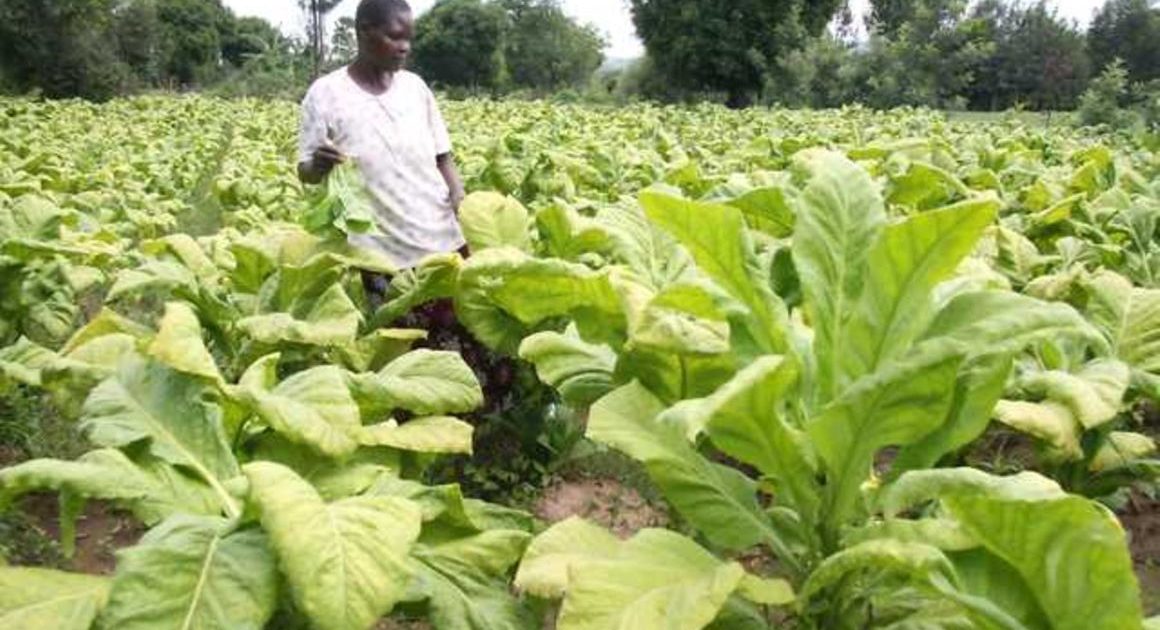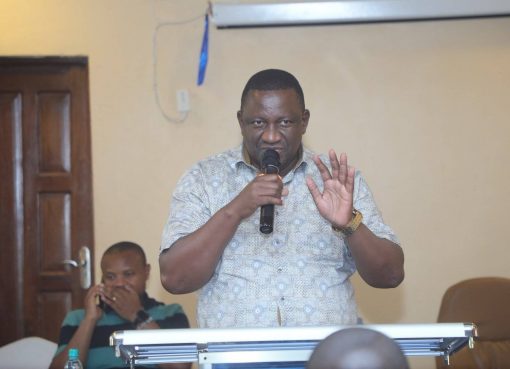The World Health Organization (WHO) has made a clarion call to governments to halt subsidizing life-threatening tobacco crops and instead focus on offering more support to sustainable crops that could feed the millions.
Dr. Tedros Adhanom Ghebreyesus, WHO Director-General said that tobacco causes over 8 million deaths yearly, yet governments across the world spend millions supporting tobacco firms.
“By choosing to grow food instead of tobacco, we prioritize health, preserve ecosystems, and strengthen food security for all,” Dr. Ghebreyesus emphasized during the release of a new report on tobacco.
The report indicated that more than 300 million people globally are facing acute food insecurity while 3 million hectares of land in more than 120 countries are tilled to grow the deadly crop.
Dr. Ghebreyesus reassured that 182 Parties to the WHO Framework Convention on Tobacco Control (WHO FCTC) have committed to “promoting economically viable alternatives for tobacco workers and growers.”
In this way, WHO FCTC observes that it is a significant way in which countries can fulfil their obligations by ending subsidies for tobacco growing and supporting healthier crops.
In a joint United Nations initiative by WHO, the World Food Programme, the Food and Agriculture Organization of the United Nations (FAO), the United Nations Capital Development Fund (UNCDF) and the United Nations Convention to Combat Desertification (UNCCD), supported by the Secretariat of the WHO FCTC in collaboration with ministries of health and agriculture, is supporting countries to create enabling and supportive crop production and marketing ecosystems to help farmers switch from tobacco growing to alternative livelihoods.
Through this noble support, farmers are enabled to avoid tobacco-growing contractual agreements and switch to alternative food crops that will help feed their communities instead of harming their health.
The report dubbed; “Grow food, not tobacco,” highlights the ills of tobacco growing and the benefits of switching to more sustainable food crops for farmers, communities, economies, the environment, and the world at large.
It further exposes the tobacco industry for constantly trapping farmers in a vicious cycle of debt, propagating tobacco growing by exaggerating its economic benefits and lobbying through farming front groups.
The global health body observes that tobacco farming causes diseases to the farmers themselves and estimates that more than 1 million child labourers are working on tobacco farms, thus leading to a lack of the requisite education opportunities.
A position affirmed by Dr. Ruediger Krech, Director of Health Promotion at WHO, who pointed out that tobacco is not only a massive threat to food insecurity, but health overall, including the health of tobacco farmers.
“Farmers are exposed to chemical pesticides, tobacco smoke and as much nicotine as found in 50 cigarettes leading to illnesses like chronic lung conditions and nicotine poisoning,” Dr. Krech elaborated.
According to the WHO’s latest data, there has been a 20 per cent upward trajectory in tobacco farming land across Africa and the expansion of tobacco companies since 2005. In Kenya, it denotes that tobacco contributes to 0.03 per cent of the GDP.
It’s against these backdrops that WHO, the Food and Agriculture Organization(FAO)and the World Food Programme is supporting the ‘Tobacco Free Farms’ initiative that will provide much-needed help to over 5,000 farmers in Kenya and Zambia to grow sustainable food crops instead of tobacco.
In this year’s World No Tobacco Day (WNTD) to be held in Migori on Wednesday May 31, 2023, Ms. Sprina Robi Chacha will be one of the awardees.
Chacha, a female farmer from Kenya, is being recognized for not only switching from growing tobacco to embracing high-protein beans but also being at the forefront of training hundreds of other farmers on new crop farming methods to create a healthier community.
Her efforts with the help from other stakeholders, have seen over 2000 farmers who have already shifted to growing high-iron beans.
Notably, this saw a surge in school-going children and increased access to healthy and protein-rich foods instead of focusing on tobacco growing thus fostering healthier communities.
In a testimony carried out in the WHO report from Alice Achieng Obare, a resident of Bondo-Nyironge, Suna West Sub-County, she informs that beans farming does not involve a lot of labour.
“When we were farming tobacco, it was tiresome, and we used to start in October and work until August. It was a lot of work for my children and myself, and the children weren’t able to attend school.
“Once you start tobacco work, you have to cut down the trees and the tobacco leaves. Then you start to gather the leaves. When it’s time to put the tobacco leaves into the curing room (kiln), it’s always full of smoke, which you inhale. Even if you don’t smoke cigarettes, you’re already a smoker,” said Obare further adding that in beans farming you can do it and go on with other business engagements.
“Right now, my children have time for homework. During tobacco growing, they were not able to get time for homework. I would also like to tell tobacco farmers that they should come and see my X-ray health report from my doctor,” she continues; “My chest is full of smoke (damage). I can’t carry heavy items, and I can’t walk for long distances. But for beans farming, there is no stress.”
WHO’s calls to action for governments to dismantle the tobacco boards and not promote tobacco growing, or repurpose these boards to support alternative livelihood programmes.
Additionally, it advises that governments should explore a multi-sectoral approach and develop viable alternatives to tobacco growing, provide in-country agricultural support, engage communities/farmer cooperatives and facilitate the access by farmers to local and national markets for alternative livelihoods such as food crops.
Pointedly, it encourages parties to the WHO FCTC to leverage their commitment to supporting tobacco farmers in switching to alternative, sustainable livelihoods, in line with Articles 17 and 18 of the WHO FCTC and its guidelines to free up land from tobacco crops to improve food security and nutrition.
WHO further urges governments to support efforts to recognize and combat desertification, deforestation and environmental degradation due to tobacco growing and hold the tobacco industry accountable for the risks posed to the environment and the adverse health effects of tobacco growing and manufacturing, and impose costs.
It calls for recognition of the tobacco industry’s tactics when it comes to its support for tobacco farmers in switching to alternatives, including child labour projects and other corporate social responsibility projects.
Significantly, WHO urges governments to recognize the environmental and ecological footprint of the crops they import and expand their development cooperation agenda to support alternative livelihood programmes instead of tobacco growing in the least developed and low- and middle-income countries as part of development cooperation agreements.
Article 17 of the WHO FCTC states that Parties “shall, in cooperation with each other and with competent international and regional intergovernmental organizations, promote, as appropriate, economically viable alternatives for tobacco workers, growers and, as the case may be, individual sellers.”
WHO FCTC stresses that it does not aim to penalize tobacco growers and workers, but instead to promote economically viable alternatives for tobacco workers, growers and, as the case may be, individual sellers who will be affected by a reduction in tobacco consumption.
By Rolex Omondi





